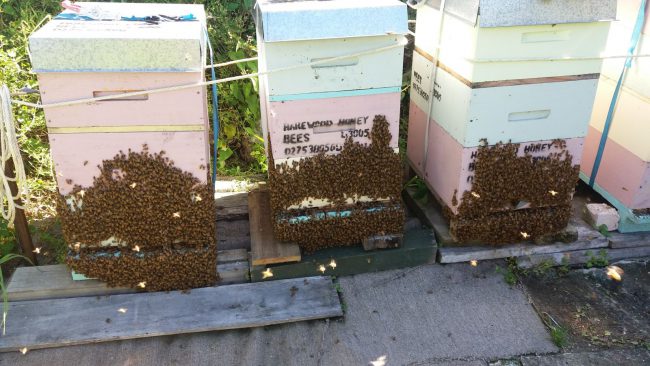In New Zealand, all beekeepers and the location of their hives must be registered in accordance with the Biosecurity (National American Foulbrood Pest Management Strategy) Order 1998. A national register of beekeepers is maintained by AsureQuality, a government owned commercial company – http://www.asurequality.com. The Apiary Register is part of New Zealand’s strategy to eliminate American Foul Brood (AFB) in managed bee colonies. There is no cost to register hives, but an AFB Biosecurity Levy based on the number of apiaries and hives held by the beekeeper must be paid each year. In addition, each beekeeper must complete an Annual Disease Return (ADR). A separate annual Certificate of Inspection (COI) showing that each hive was inspected for AFB by an approved person must also be completed and returned. See http://www.afb.org.nz/ for further details.
To register as a beekeeper, register an apiary or change your details on the Apiary Register, please contact the Apiary Registrar
Before acquiring a hive, please give some thought as to where on you are going to place it. Bees and people have existed side-by-side for thousands of years and our Club has many members who keep a hive or two at home in their back garden. Some district councils in New Zealand have bylaws that prohibit urban beekeeping or require urban beekeepers to apply for a council permit before they acquire hives. We are fortunate that neither Christchurch City Council, Selwyn District Council nor Waimakariri District Council have specific bylaws that prohibit or control urban beekeeping in this way. However, your local council may take action if complaints of nuisance are made by neighbours regarding bees. This action might include asking the beekeeper to:
- erect a high fence so that that the bees are forced to fly upwards when they leave the garden
- move the hive to a different part of the section
- remove the hive to another location completely
Many of our members report that their neighbours had no idea that they kept bees at home until they presented them with a jar of honey. Bees are a tremendous asset to any neighbourhood, but we do ask members to be responsible and consider their neighbours if they intend to keep bees on a residential section. If you have any doubts about whether your garden is a suitable location for bees, contact the Club and ask for advice. Better still, join us: our wealth of experience and expertise means that new beekeepers will receive lots of encouragement, advice and support.
The Christchurch Hobbyist Beekeeper’s Club also encourages its members to complete an AFB recognition training course. Beekeepers who successfully complete the course and pass the qualifying exam are eligible to enter into a Disease Elimination Conformity Agreement – known as a DECA. The DECA is an agreement between the beekeeper and the Management Agency and sets out the standards and practices that the beekeeper will follow and maintain. While not a legal requirement, holding a DECA is clear sign that you are a responsible and well-informed beekeeper.

